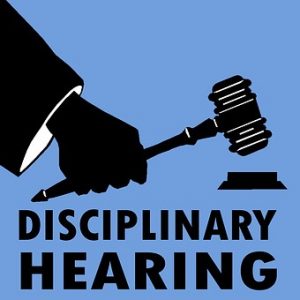No discussion of New Jersey employment law would be complete without New Jersey’s Civil Service System, which governs all state government employees, and employees of twenty of New Jersey’s twenty-one counties, and the majority of its municipalities.
As far back as 1961, the Appellate D ivision gave a cogent summary of the disciplinary procedures in New Jersey’s Civil Service Act, which is worth quoting ver batim.
ivision gave a cogent summary of the disciplinary procedures in New Jersey’s Civil Service Act, which is worth quoting ver batim.
Disciplinary proceedings against a civil servant are not only an attempt to determine the status of a particular individual; they are a statutorily authorized action to redress a wrong committed against the people of the State by one in whom the public trust has been officially reposed. The proceedings are therefore penal, or at least Quasi-penal, in nature, and deeply embedded constructional principles, supported by fundamental notions of fairness, dictate that in such an action the statute or regulation defining the alleged violation be construed to comport with the fair meaning of the language used. The theme of fairness threads its way through the notice, hearing, and right of appeal provisions of our Civil Service Act, and finds particular pertinence in those sections requiring that the causes for removal constituting ‘just cause’ be enumerated with specificity. The governing consideration, that one be fairly and completely advised of the nature of the charges against him, loses all effectiveness if it is not reinforced by a requirement that the proscribed activities and contingencies warranting disciplinary proceedings be set forth with reasonable particularity and construed accordingly.
 employees the ability to appeal most employer imposed discipline to the New Jersey Civil Service Commission.
employees the ability to appeal most employer imposed discipline to the New Jersey Civil Service Commission. New Jersey Lawyers Blog
New Jersey Lawyers Blog


 employment who meet the Civil Service definition are eligible to receive a veterans and disabled veterans preference, which increases their ranks on eligible lists. The courts have
employment who meet the Civil Service definition are eligible to receive a veterans and disabled veterans preference, which increases their ranks on eligible lists. The courts have  placement on eligible lists (also referred to as “certifications”). There are five types of eligible lists: Open competitive lists, promotional lists, regular reemployment lists, police and fire reemployment lists, and special reemployment lists.
placement on eligible lists (also referred to as “certifications”). There are five types of eligible lists: Open competitive lists, promotional lists, regular reemployment lists, police and fire reemployment lists, and special reemployment lists. knowledge, skills and abilities for the job. Announcements are posted on the Commission’s
knowledge, skills and abilities for the job. Announcements are posted on the Commission’s  processes to ensure that employment decisions are based on merit and fitness, just cause must be found for imposing discipline. And because the employer is the government, all discipline, New Jersey’s Court’s have
processes to ensure that employment decisions are based on merit and fitness, just cause must be found for imposing discipline. And because the employer is the government, all discipline, New Jersey’s Court’s have  some of those consequences.
some of those consequences. government civil service jurisdictions.
government civil service jurisdictions. classifications are.
classifications are. ivision gave a cogent
ivision gave a cogent